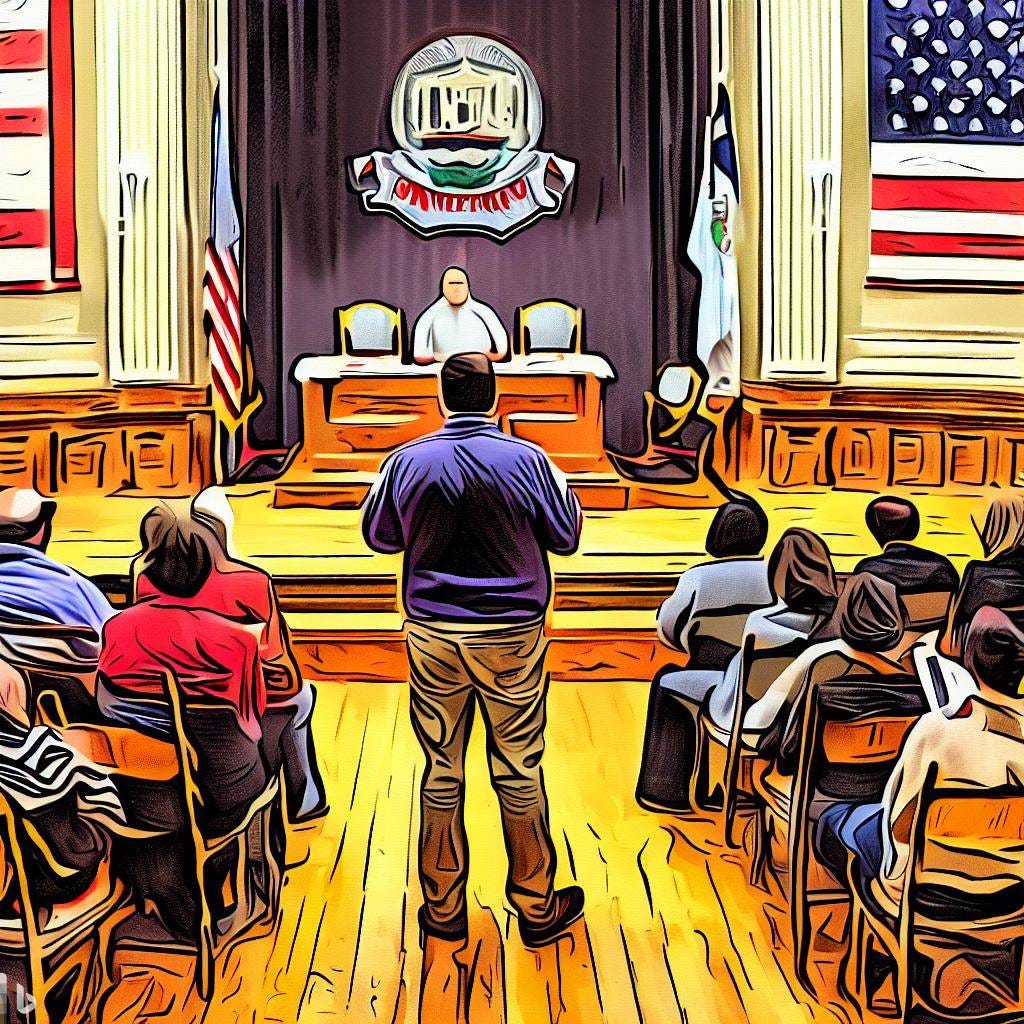Cranky television
On New England mythology, air pollution, and why giving Robert F. Kennedy, Jr., access to TV town halls is a bad move
Robert F. Kennedy, Jr., has embarked on a troublesome campaign for President, challenging the sitting President of his own party, not on the merits (of which he offers none), nor on his own qualifications (of which he possesses none, having never been elected so much as town dog catcher), but on a platform constructed mainly of conspiracy theories and crankery. Yet, endowed with an enviable brand name for entering politics, he gets attention from the media -- including his very own televised "town hall" on the NewsNation network.
■ The concept of a town hall meeting is, of course, perfectly laudable in theory. America treasures our mythical New England town hall session, where everyone in a community has a chance to be heard. But an election to the Presidency is no such escapade. Some voices are toxic, and there's nothing wrong with giving them less air time than others.
■ Some of the old gatekeepers abused their power in the past, depriving the public of ideas that might have elevated the debate and placed important issues closer to the center of the conversation. But that doesn't make gatekeeping itself invalid. We discourage pollution in the air, water, and soil; toxic ideas can pollute the public consciousness, too.
■ There ought to be some perspectives and attitudes that are simply beneath the standards of self-respecting institutions invested in earning and maintaining the trust of the public. The government doesn't have to impose regulation to address the problem (nor should it). But it ought to be a matter of self-regulation: It should be beneath the dignity of a serious newspaper, news network, magazine, or online outlet to amplify fascists, anarchists, inveterate liars, unserious cranks, and others whose presence undermines the Constitutional order or the common good of a liberty-based society.
■ And the "town hall" format -- contrived as it is -- is a terrible insulator against bad actors and bad ideas breaking through. It is an avoidance of responsibility on the part of the outlet providing the platform: Everyone, including both candidates and audience members, knows how to game the system for maximum self-interest, which is often directly contrary to the public interest. The only participants who get hurt end up being the reasonable candidates: As the saying goes: Never wrestle with a pig; you both get dirty and the pig likes it.
■ Sometimes, the right answer is "No", and in the case of the televised town hall, that ought to be the default answer whenever one is proposed. News outlets should certainly seek to interact with -- and thoughtfully attempt to screen -- candidates for the highest office in the land. Their questions shouldn't be cloying, lazy, or even sympathetic: The Presidency is a job for which there is no perfect training and in which failure is often devastatingly costly. Tough screening by well-prepared interviewers is among the only ways the public will learn who is up to the job.



